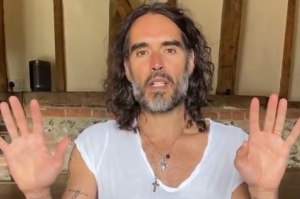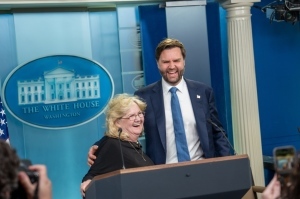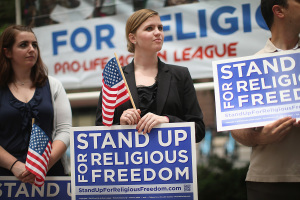Christian Leaders in Middle East Largely Opposed to U.S. Military Strike in Syria, Says WEA
Christian leaders in the Middle East believe that a U.S. military intervention in Syria will have a "detrimental effect" on Christians in the region, Geoff Tunnicliffe of the World Evangelical Alliance said in a statement to the White House on Thursday.
Tunnicliffe, who serves as the secretary general for the global evangelical group, is currently attending a conference in Amman, Jordan, to address the plight of "Arab Christians," particularly those in Egypt and Syria. The conference was convened by Jordan's King Abdullah II and attended by California's Saddleback Church pastor Rick Warren, Christian Hollywood producers Roma Downey and Mark Burnett, and several Middle Eastern Christian leaders.
After speaking at the conference, Tunnicliffe sent a letter to the White House and the United Nation's Security Council saying that the majority of Christian leaders he spoke to from the Syria region discourage military action in their country, saying such intervention would have a "detrimental effect" on Christians in the region.
"I think I can say that there is a major consensus amongst the Christian leaders in this region that any military intervention by the United States will have a detrimental effect on the situation and in particular for Christians in Syria," he wrote, adding that "Christians have already been threatened in Syria by some of the opposition indicating that a post regime Syria will be Muslim and Christians will not be welcome."
Currently, the U.S. is considering whether to conduct a limited military strike on Syria, claiming it has proof that Syria's government, led by President Bashar Assad, is responsible for a chemical weapons attack that took place on civilians near Damascus on August 21, killing 1,429 people, including 426 children. The Bashar Assad regime has been involved in a bitter civil war with rebel forces seeking to overthrow the president's regime for the past two years. The rebel forces include a mix of al-Qaeda-aligned groups hoping to make Syria an Islamic state and more moderate rebels hoping to simply overthrow the Assad regime.
Due to the fact that some rebel forces want Syria to become a completely Islamic state, Christian leaders in the region are concerned that if the U.S. helps oust Assad from power, Christians will ultimately face persecution or be forced out of the country.
Sen. Rand Paul (R-Kentucky) said in a recent interview on NBC's "Meet the Press" that he opposes U.S. intervention in Syria because Syria's President Assad "has protected Christians for a number of decades," and "Islamic rebels" are responsible for persecuting Christians in the region.
"I think the Islamic rebels winning is a bad idea for the Christians, and all of a sudden we'll have another Islamic state where Christians are persecuted," Paul said. The Middle East is already overwhelmed with an estimated 2 million refugees from Syria, who have fled their war-torn homeland.
The National Association for Evangelicals, a group representing 40 evangelical Christian denominations and over 45,000 local churches in the U.S., recently conducted a survey that found 62.5 percent of its member pastors oppose U.S. intervention in Syria. Leith Anderson, president of the NAE, said in a personal statement to the Religion News Service that there are many different reasons why the Syria issue is a difficult, complicated subject for American pastors.
Anderson does not indicate whether he is for or against military intervention in Syria, instead saying that now is the time for Christians to pray for the world's leaders: "The Bible teaches us to pray for our leaders. This is a week for extra prayers as our Congress and President decide what to do about Syria. And, let's add Syrian leaders to our prayer list. Our request is that God will give wisdom to make choices for a lasting peace in the region," Anderson stated.
President Barack Obama announced earlier this week that although he is in favor of a limited military strike against Syria that would not involve "boots on the ground," he would seek the permission of Congress to go through with the strike. The majority of Congress remains undecided on the issue, although House Minority leader Nancy Pelosi, a democrat, and House Speaker John Boehner, a republican, have both voiced their support for a military strike.





























